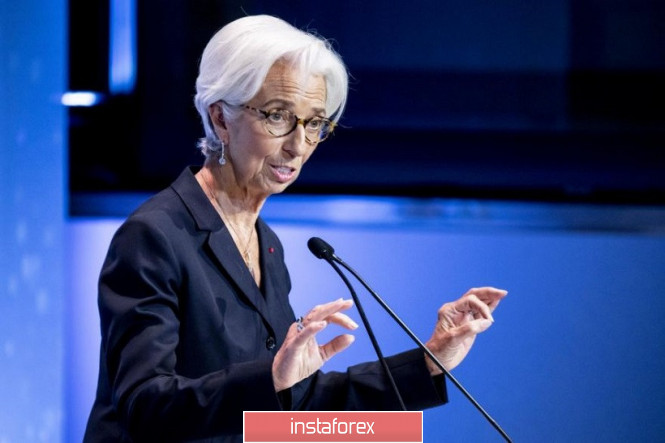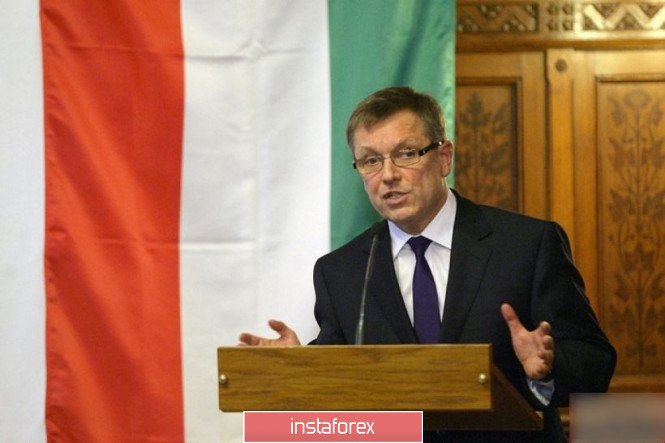The first speech of the new chairman of the European Central Bank, Christine Lagarde, was without sensations. Her rhetoric was more of a political and ceremonial character, since the speech was devoted to Wolfgang Schauble, the speaker of the lower house of the German Parliament and the country's former finance minister. He is the architect of strict fiscal policy while completely ignoring requests from other EU countries to increase government spending (the so-called "black zero" policy). At the same time, the European Central Bank has recently increased pressure on politicians to take appropriate steps with fiscal measures and structural reforms.
Schauble, in turn, is a consistent critic of the policies of the ECB (or rather, Mario Draghi), blaming the regulator, in particular for the fact that soft monetary policy provides indirect support for the growth of right-wing populism in Germany. On the whole, Berlin is a key opponent of unprecedented stimulus measures by the ECB - according to the majority of German economists and politicians, record low interest rates and cheap loans harm German investors.

Therefore, Lagarde's first speech as the head of the ECB before a German audience a priori could not be too "soft": after all, the new head of the central bank needs to build constructive relations with the main European players, and Germany plays a key role in this regard. That is why Lagarde yesterday chose not to talk about the prospects for monetary policy of the central bank. In her rather lengthy speech, she called on Europe to "show courage" and "overcome indecision" in the context of overcoming the economic crisis in the eurozone. However, behind the pathos and veiled phrases lay quite tangible subtext. Just a few days before taking office, Christine Lagarde lamented the "lack of solidarity" among the eurozone countries. In particular, she called on Germany and the Netherlands, with their "chronic budget surpluses"to increase investment and government spending.
By the way, in early September, rumors appeared in the market that Germany could create the so-called "shadow budget" to increase government spending. According to Reuters, the German government is considering the possibility of creating this mechanism, given the slowdown in the growth of the national economy. The main objective of the mechanism under discussion is to increase government spending in such a way as to circumvent restrictions on the growth of public debt, thereby observing the rules of the European "Stability and Growth Pact." At the end of last year, it was for violating this pact that Brussels was going to hold Italy accountable - Rome was facing a fine of several billion euros for exceeding the "ceiling" of the budget deficit. If Berlin succeeds in creating a "shadow mechanism" that will allow legally increasing government spending, then these funds will be directed to infrastructure and other projects.
Germany officially denies the existence of such intentions - the representative of the German Ministry of Finance said that the government still adheres to the position of "fiscal rationality." But talk about this still remains because the financial impulse from Germany is especially important in the context of the subsequent actions of the European regulator. According to some experts, this step on the part of the Germans will allow members of the European regulator not to resort to further aggressive measures to mitigate the parameters of monetary policy.
Given the current split in the ECB, yesterday's rhetoric of Lagarde was indicative: apparently, it will continue to exert verbal pressure on Germany and the Netherlands, urging them to use the surplus of their budgets.
Despite the neutral-political speech of the head of the European regulator, the EUR/USD pair still fell to the bottom of the 11th figure by the end of Monday. But this dynamics was determined by Lagarde's rhetoric, and by the statement of another European official, Gyorgy Matolcsy, who holds the post of head of the Hungarian National Bank. In an interview with the Financial Times, he said that the eurozone countries should be able to stop using the single currency "in the next ten years." In his opinion, the countries of the EU did not and do not need the euro, and most countries of the eurozone did not benefit from the introduction of a single currency. The head of the Hungarian regulator called the idea of the euro a "French trap", which essentially does not serve the common interests of the European Union.

Such an unexpected statement put pressure on the euro, but the decline in the single currency was limited. Firstly, Hungarian politicians very often criticize the European integration processes in general and the actions of Brussels in particular. Secondly, the "dissident" position of the head of the Hungarian central bank does not have support among his colleagues, so traders should not be afraid of any practical steps in this direction in the foreseeable future.
Thus, according to the results of Monday, the EUR/USD pair remained within the 11th figure, that is, in fact, remained at its former positions. To develop the downward movement, the bears of the pair need to gain a foothold below 1.1090 (the middle line of the Bollinger Bands indicator, which coincides with the upper boundary of the Kumo cloud on the daily chart). Whereas for bulls the opposite task is to gain a foothold above 1.1210 (the upper line of the Bollinger Bands is on the same timeframe). As you can see, both sellers and buyers of EUR/USD were not able to implement their "minimum program": the pair is still waiting for more powerful information drivers.
The material has been provided by InstaForex Company - www.instaforex.com